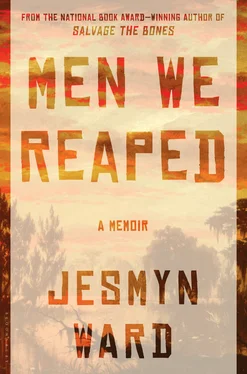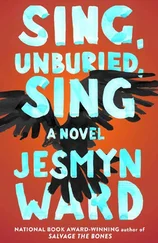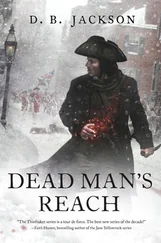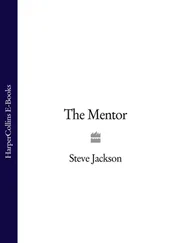Aldon turned up the music: rap. It beat us down those highways, over the miles. By the time we stopped in the middle of the plain farmland of Ohio for Coke, for bathroom breaks, for snacks, I didn’t have to plug my nose with tissue. By the time we crossed the Ohio River over to Kentucky’s rolling green hills, I could inhale and exhale through my nose. Aldon drove with his left hand on the wheel, his right on the armrest, centered.
I hope nobody dies this summer , I thought.
While my classmates remained in Ann Arbor or worked on fishing boats in Alaska or visited family in Cape Cod during their summer breaks, I always went home to Mississippi. I had done the same every winter break, every spring break, and every summer break while I was an undergrad at Stanford University from 1995 to 2000, and I continued the tradition in the summer of 2004. Homesickness had troubled me ever since I’d left for Stanford in 1995. I would hide weird crying jags from my then-boyfriend when I saw down-on-their-luck men who reminded me of my father. I would beg long conversations on the phone with my friends at home so I could listen to the sounds in the background, wishing I were there. I dreamed of the woods surrounding my mother’s house, that they were being razed and burned. I knew there was much to hate about home, the racism and inequality and poverty, which is why I’d left, yet I loved it.
During visits, I lived in my mother’s house, a white double-wide trailer, set on the back of an acre, away from the road. Spanish oaks and small garden plots filled with azaleas and bulbs dotted the front yard. My mother was proud of her yard and worked hard at cultivating it, even though we lived at the top of a hill, which meant that when the heavy rains came during the spring and the summer, the earth washed down the hill into the street, and the front part of the yard remained sandy. Joshua was four years dead that summer, so my mother had converted his room into a bedroom for my seven year-old nephew, De’Sean. My middle sister, De’Sean’s mother, Nerissa, twenty-one, lived in a duplex apartment in Long Beach, Mississippi, at the time. She’d given birth to De’Sean when she was thirteen, and hadn’t had the opportunity or the maturity to be a mother to him, so De’Sean lived with my mother, and Nerissa had learned to mother him on weekends. My youngest sister, Charine, eighteen, still lived in my mom’s house. She graduated from high school days after I made it home from Michigan.
When Aldon and I arrived from our long drive, I let myself in the back door, tiptoed into Charine’s room, and climbed into bed with her. She didn’t turn me away, even though I was sweating Coke and Corn Nuts with concentration thinned to its most desperate. I threw an arm around her, faced her back. We were the same height, nearly the same weight, had the same long-limbed petite frame, except her hips were slimmer than mine, her eyelashes thick as Joshua’s and Nerissa’s. When I first went away to college, she was eleven years old, and she saved my fingernail clippings and the glass Coke bottles I drank out of. She was my baby sister. I let myself be weak for a moment. Either she was asleep or she had the grace to pretend that she was asleep, because when I lay behind her and cried, my unsteady breathing the only clue I wept, from dread or relief, she let me. That is how we began our summer.
When we woke, she didn’t mention my crying. Instead, we went for a ride in the car. Charine suffered from motion sickness, and air-conditioning made it worse. I wanted to soak in all the heat I could, since my first Michigan winter had stunned me with relentless snow and unyielding cold, so we rode with the windows down in hundred-degree Mississippi heat. We had nothing to do. We rode down to the county park, the swings hanging limp and smelling like singed rubber in the sun, the nets on the basketball hoops still, the bleachers empty. The landscape echoed with loss and grief. We were lonely.
“Let’s go chill by Rog,” Charine said. “There’s always people over there, and he’s always home.”
Rog lived in a subdvision in Pass Christian called Oak Park. It was mostly Black, and the maze of its streets began at North Street, on the north, and ended on Second Street, in the south, which was around two long blocks away from the beach and the Gulf of Mexico. The houses closer to North Street were standard to most of the subdivisions I’ve seen in south Mississippi: brick, one story, three bedrooms, a sliver of a concrete slab serving as a porch across the front. The houses that were closer to Second Street, closer to the beach, even by scent and not sight, were larger. Rog and his mother, Phyllis, who everyone called Mrs. P., lived in a house that was closer to North Street.
Rog was short and lean. He was brown as pine bark, and wore braids, and clothes so loose he almost disappeared in them. His eyes were always half lidded, always squinting. His face was narrow and long. His smile was shocking, bright, wide. He smiled a lot.
Rog’s father, Roger Eric Daniels II, or Jock for short, had died when he was twenty-eight of a heart attack, so Mrs. P. was the sole caregiver, which meant that Rog, like most of us who grew up without fathers, spent a lot of time with his two older sisters or other kids his age, unsupervised, especially in the summer. One Fourth of July, he and his cousins twisted firecrackers together in a sulfurous bunch, put the firecrackers in mailboxes, and lit them. The mailboxes exploded. Someone called the police. When the police arrived, they told the kids that it was a federal offense to tamper with the mail, and they took the other two boys to a juvenile detention facility. This is how silly pranks by Black kids are handled in the South, Rog learned. Rog was lucky in some ways: he wasn’t caught.
When Rog was in seventh grade, he dated my middle sister, Nerissa, for a week. She hadn’t become pregnant with my nephew by then, but she soon would. Nerissa’d had curves since she was nine. She had long glossy hair, and one mole on her chin and another on her chest, lined up like buttons; from when she was a toddler, my parents recognized the curse of beauty put on her. If we ever have to worry about being made grandparents early , my mother would say of Nerissa, she’s the one . Nerissa, unlike me, was popular in middle school, had boyfriends. She said she was head over heels for Rog, thought that he was the cutest thing in middle school. They passed notes in class. His asked: Do you want to go out with me? My sister replied: Yes . She wore big T-shirts she borrowed from Josh, big shorts, and tennis shoes. A year or so later, when she got pregnant for a nineteen-year-old boy from Gulfport, those T-shirts she borrowed from Joshua would hide her growing belly for the first five months.
Nerissa and Rog’s romance lasted a week. She was too boyish, with her big shirts and shorts, so Rog broke up with her. But they were still friends. Years later, when she was living in her first apartment, Rog would visit, walk through the front door, throw his arms around her, ask her, “When you going to be my old lady?” Smile.
“You had your chance,” Nerissa joked. Rob, her boyfriend, sat on the sofa, with a black cigar in the corner of his mouth, a beer at his side. He smiled, his genial, easy smile, and showed the gold teeth he polished so religiously they shone against his dark face.
“Aw, come on Nerissa, give me another chance,” Rog said.
“Nope,” Nerissa laughed.
Rog’s bedroom was dark: dark walls, dark curtains. He had shelves up, and on his shelves were model cars with shiny chrome wheels on them, so carefully put together, down to the smallest detail. In his stereo, you’d find Tupac. Old No Limit and Fifth Ward Boyz, both out of New Orleans. Camron and Dipset out of New York City. And on his wall, he hung pictures. He was a good artist. In Mississippi, out in the country where there is no concrete or enough buildings crammed closely enough to make a good canvas for graffiti, kids who would normally develop their street art and tag do it like Rog did, by papering their rooms with sketches. Rog drew pictures of cars and some of people. He tried his hand at stylized words. OPT, one piece of artwork said. Another: THUG LIFE. And another: LAUGH NOW, CRY LATER.
Читать дальше












